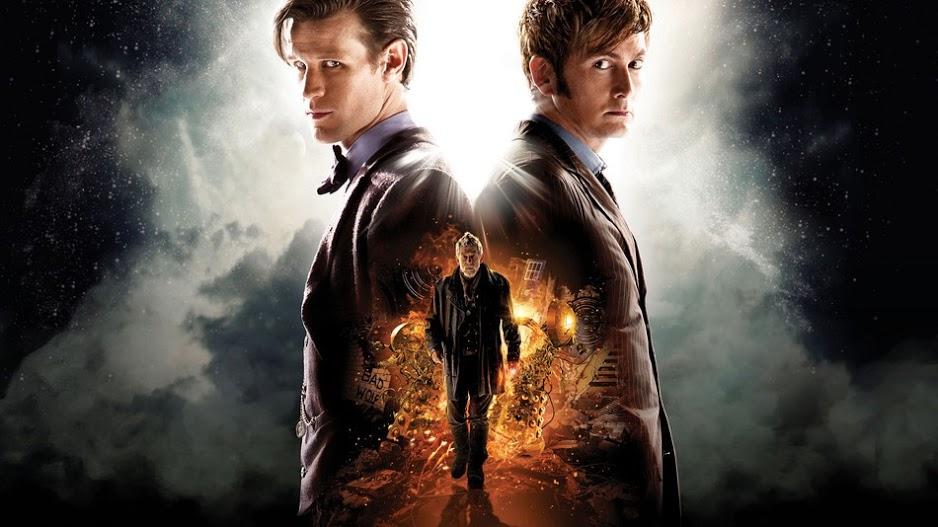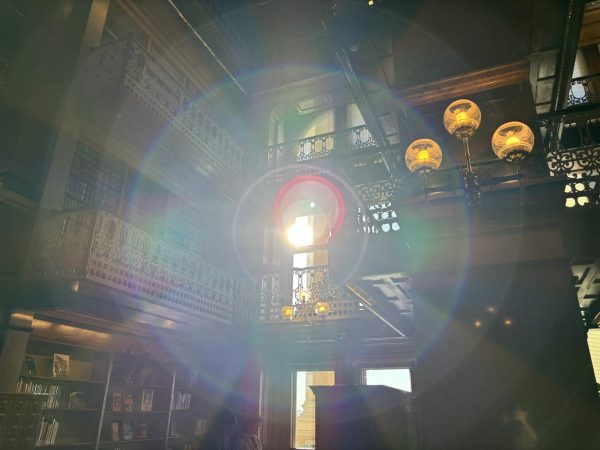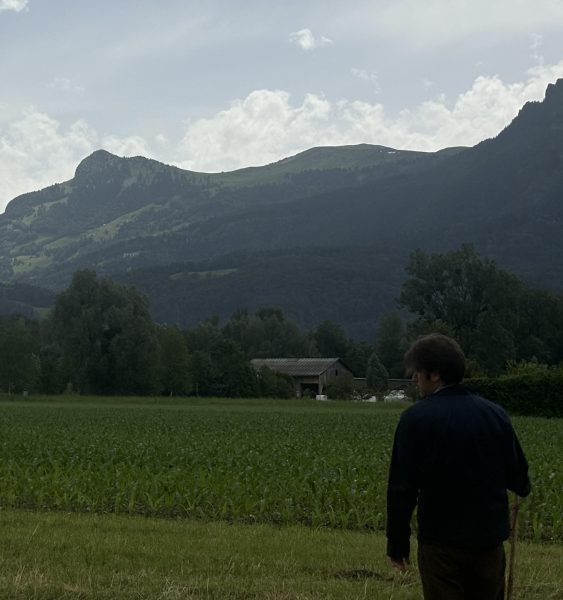Doctor Who turns 50
TL;DR, 8/10 Would watch again.
MAY CONTAIN SPOILERS (read at your own risk)
Cancel all weekend plans, they said. Mark it in your diaries, they cried. For the day is nigh. “Our future depends on one single moment of one impossible day, the day I’ve been running from all my life. The day of the Doctor.” The long-awaited, some may say overly hyped 50th anniversary of a peculiarly British phenomenon with 77 million viewers worldwide and the highest Audience Appreciation Index of any TV drama in the UK.
Doctors of the past and future showed up in unexpected forms. Long-standing plot points — even the numbering system we use to tell the Doctor’s regenerations apart — were changed forever. Overall, the episode was both funnier and more poignant than many fans were expecting.
We already knew the episode was going to deal with the ultimate transgression in the Doctor’s history: the day he destroyed both his own people, the Time Lords, as well as arch enemies the Daleks, at the conclusion of the Great Time War. We knew the shunned version of the Doctor who took that action, played by John Hurt, would appear, as would David Tennant and Matt Smith’s Doctors. We knew Rose Tyler (Billie Piper) would return in some way. We even knew Tom Baker (who played the Fourth Doctor) would return, since the actor was a little indiscreet about that fact earlier.
The Time War turned out to have a happier ending (and one fewer genocide) than we knew. Hurt’s Doctor wasn’t exactly shunned; he spent much of the episode bantering and bonding with his subsequent incarnations. Rose Tyler didn’t return; she was the personification of the ultimate weapon that Hurt’s Doctor was about to use.
And Baker? The actor, now 79, showed up at the end as a mysterious museum curator. It’s unclear who or what that curator is, whether part of the Doctor’s past or future (as Baker said pointedly, “Who knows?”)
Even all this doesn’t begin to encompass what writer and showrunner Steven Moffat managed to pack into 80 minutes. We also got the return of the Zygons, a fan-favorite monster race last seen in 1975. We got to meet the daughters of Brigadier Lethbridge-Stewart, one of the Doctor’s longest-serving companions. (The actor who played the Brigadier, Nicholas Courtney, died in 2011).
We got two Queen Elizabeth the Firsts, and the Doctor’s second (or was it first?) wedding. We got a handful of Daleks. We got all past and present Doctors on the screen in one shot. And in one of the greatest moments of fan service ever, Moffat even threw in a few seconds of (and a hard stare from) the next actor to play the Doctor: Peter Capaldi.
Capaldi, by the way, was referred to as the thirteenth incarnation of the Doctor, which means Hurt’s “War Doctor” is officially the ninth incarnation. That very likely means we’ve been numbering Doctors wrong since 2005. Moffat may well have just ignited the largest edit war in Wikipedia history.
The Doctor doesn’t just have a new set of numbers; he has a whole new motivation. The revelation that Gallifrey survived the Time War, albeit in another universe, provided it.
For the first 50 years we knew him, the Doctor was running away from his home planet — first as a TARDIS-stealing criminal, then in exile, then running from his responsibilities to help govern there, and finally running away from the memory of having destroyed it. Now, at last, he’s running home.
For all we know, it may take him another 50 years to find it. Even so, this towering achievement of an episode — one designed to please fans and newcomers alike — shows why the Doctor is finding his way into ever more homes and hearts.
This being said, Whovians and newcomers alike will be waiting in anticipation, for the conclusion of Matt Smiths tenure, on the 25th of December, for The Time of the Doctor. Fortunately, time flies… even if you don’t have a TARDIS.
Your donation will support the student journalists of Ames High School, and Iowa needs student journalists. Your contribution will allow us to cover our annual website hosting costs.

This is Rob’s first year at The WEB. He enjoys long walks on the beach, and romantic candle lit dinners. Other than writing he is a member of Team...

































